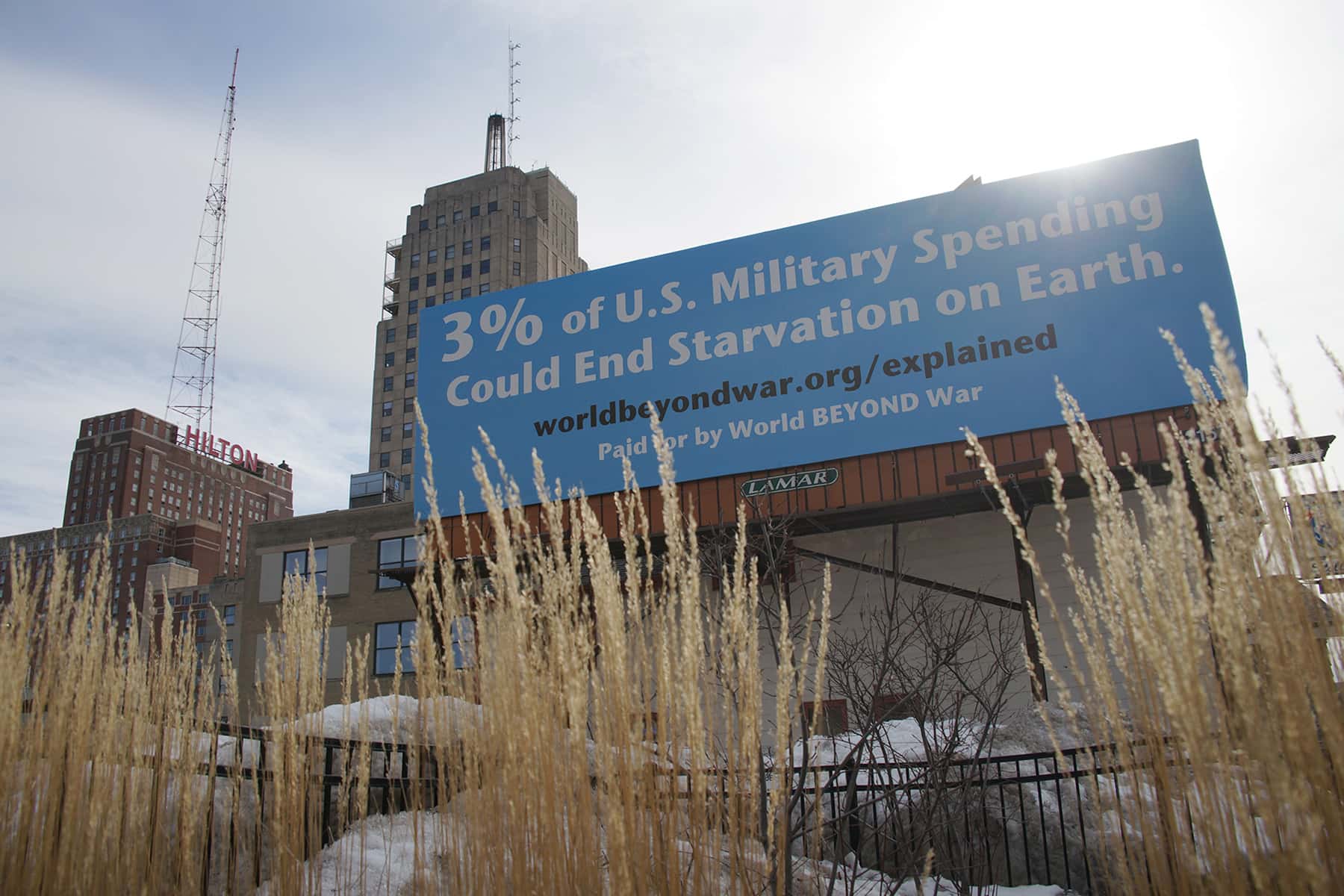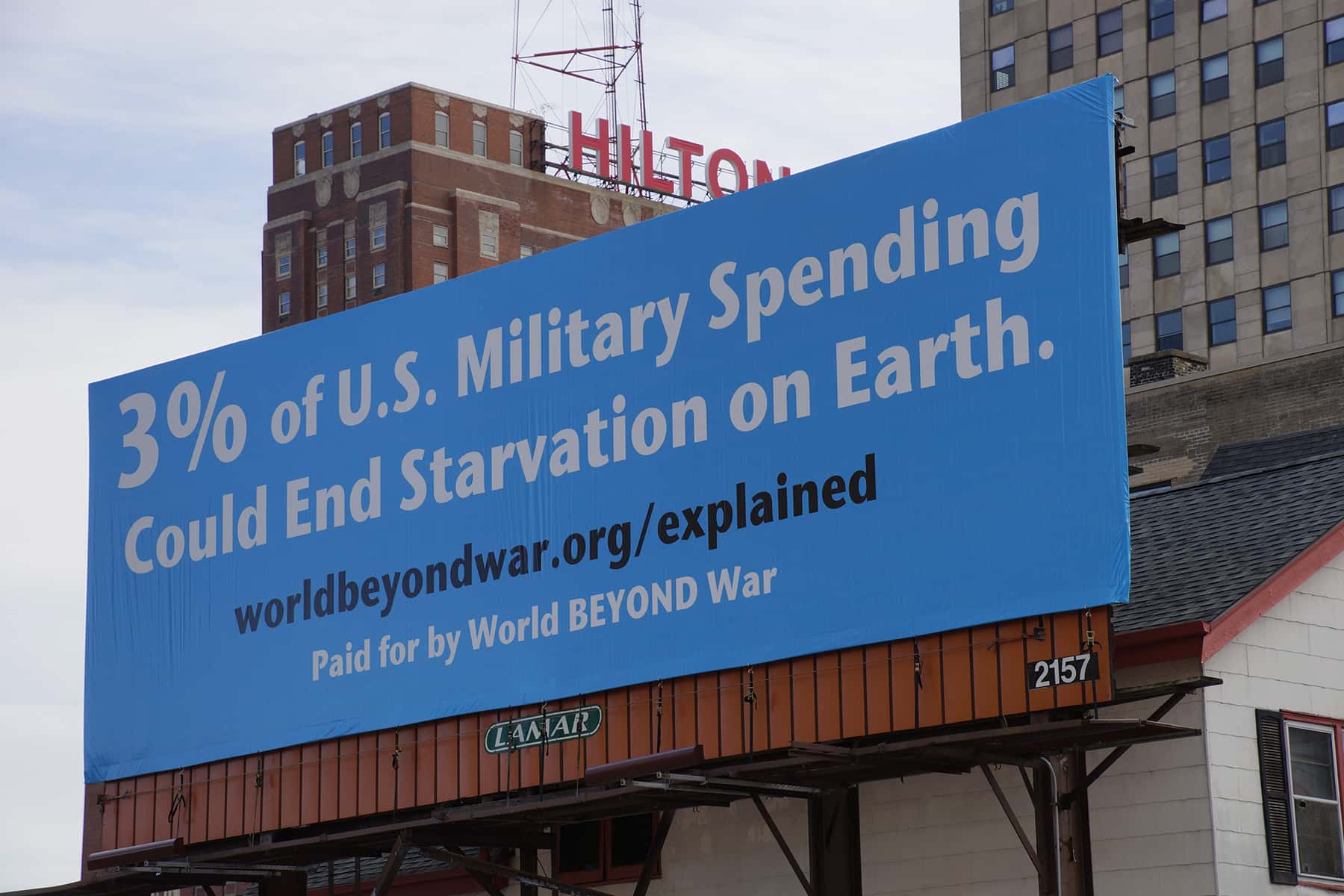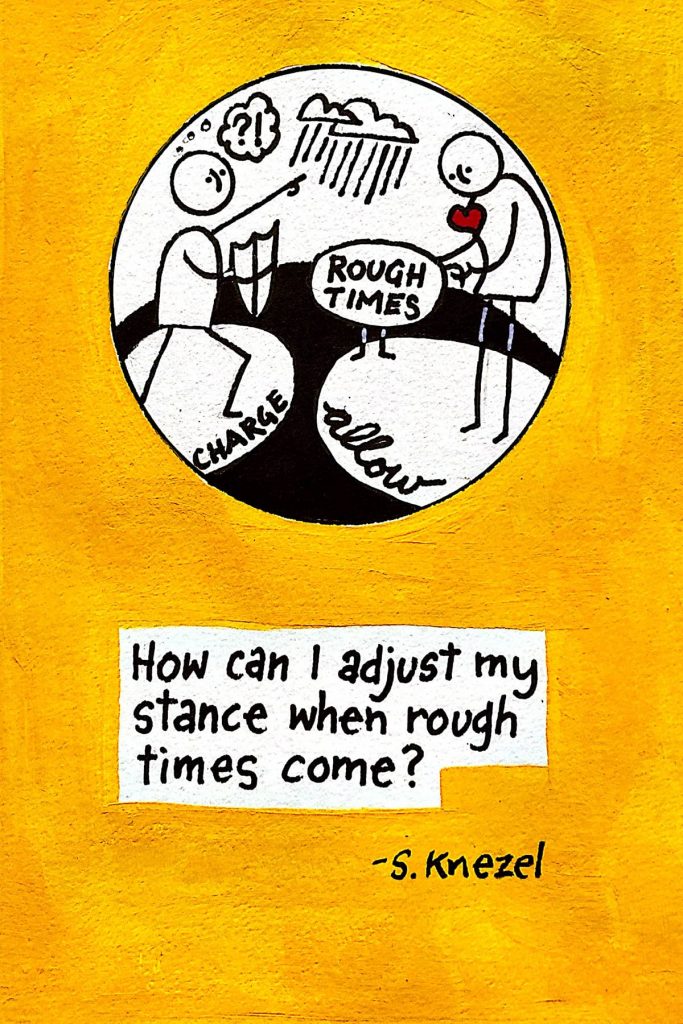
Firing a $70,000 missile from a $28,000,000 drone flying at a cost of $3,624 per hour to kill people in the Middle East living on less than $1 per day.
“We live in a country where if you want to bomb somebody, there’s remarkably little discussion about how much it might cost. But then you have a discussion about whether or not we can assist people who are suffering, then suddenly we become very cost-conscious.” – Andrew Bacevich
A billboard at the south-east corner of Wells and James Lovell Streets, across the street from the Milwaukee Public Museum, makes a bold statement: “3% of U.S. Military Spending Could End Starvation on Earth”
Milwaukeeans and others around the country with little money of their own to spare have been chipping in to put up similar billboards. The effort is designed to call attention to the disproportionate amount of resources spent on the U.S. military budget.
Organizations that have contributed to this billboard include World Beyond War, Milwaukee Veterans For Peace Chapter 102, and Progressive Democrats of America. The “3%” billboard will run through the month of February, then be posted again for July when the Democratic National Convention is held nearby.
“As veterans, we know that endless wars and the Pentagon’s corporate handouts do nothing to make us safe. We waste hundreds of billions of dollars that would be better spent on pressing needs like education, health care, and averting catastrophic climate change,” said Paul Moriarity, president of Milwaukee Veterans For Peace. “Educating and reminding people of the true costs of war is a primary mission of Veterans For Peace. We are happy to be a partner in this effort by World Beyond War.”
Jim Carpenter, local contact for the Progressive Democrats of America, said he believes Senator Bernie Sanders is correct when he says we must “bring together the leaders of the major industrial nations, with the goal of using the trillions of dollars nations spend on misguided wars and weapons of mass destruction to instead work together internationally to combat our climate crises and take on the fossil fuel industry.
As of 2019, the annual Pentagon base budget, plus war budget, plus nuclear weapons in the Department of Energy, plus military spending by the Department of Homeland Security, plus interest on deficit military spending, and other military spending totaled $1.25 trillion, as calculated by William Hartung and Many Smithberger.
The Milwaukee County Board of Supervisors in 2019 passed a resolution that read in part:
“Whereas, according to the Political Economy Research Institute of the University of Massachusetts, Amherst, spending $1 billion on domestic priorities produces ‘substantially more jobs within the U.S. economy than would the same $1 billion spent on the military’; and Whereas, Congress should reallocate federal military outlays toward human and environmental needs: aid toward the goal of providing free, superior education from pre-school through college, end world hunger, convert the United States to clean energy, provide clean drinking water everywhere needed, build high speed trains between all major U.S. cities, finance a full-employment jobs program, and double non-military foreign aid.”
“Ending world hunger is rightly only one small item in the list of what would be possible by redirecting a portion of destructive and counter-productive military spending,” said David Swanson, Executive Director of World Beyond War. “It would, however, constitute a major shift in foreign policy. Imagine what the world would think of the United States, if it were known as the country that ended world starvation. The decrease in hostility could be dramatic.”
World Beyond War explained the math of the 3% figure this way: In 2008, the United Nations said that $30 billion per year could end hunger on earth. The Food and Agriculture Organization of the United Nations (UN FAO) said that number is still up to date. Thirty billion is only 2.4% of 1.25 trillion. Therefor, 3% is a conservative estimate of what would be needed.
“Apartheid was legal. The Holocaust was legal. Slavery was legal. Colonialism was legal. Legality is a matter of power, not justice.” — Jose Antonio Vargas
© Photo
Lee Matz
















